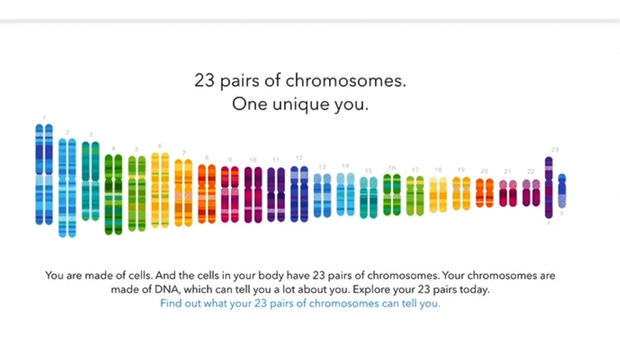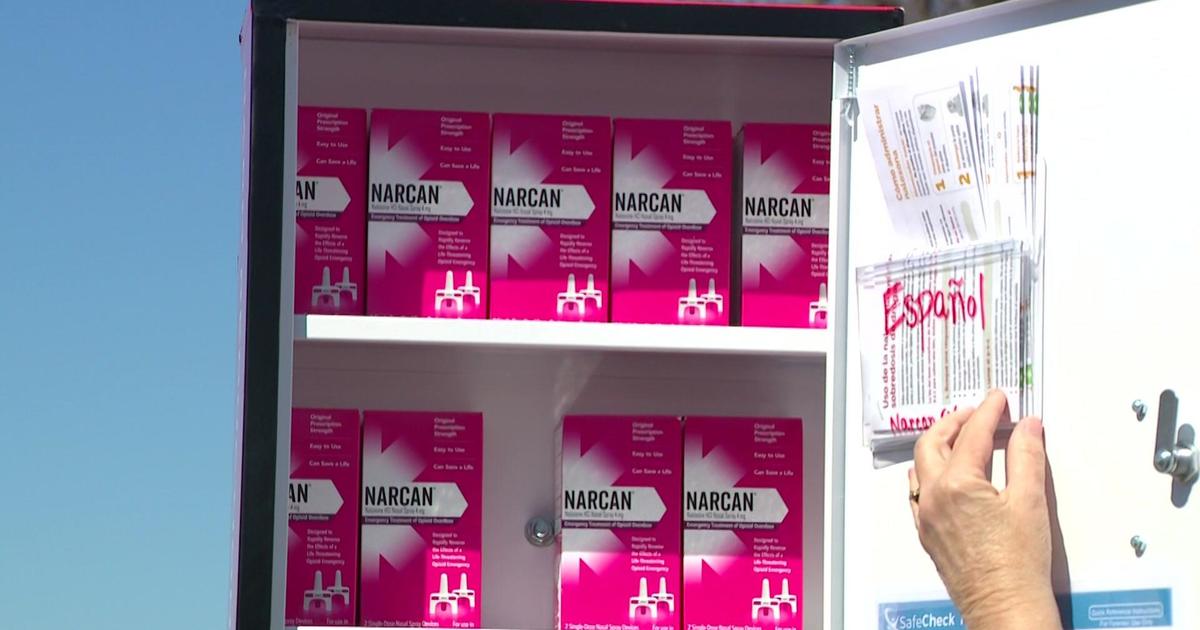Expert: Don't Put Too Much Faith In At-Home DNA Test Health Info
MINNEAPOLIS (WCCO) -- Popular at-home DNA tests like 23andMe can tell us all about our ancestry.
But they can also warn us of medical pitfalls in our family tree.
A jar of coins is a permanent fixture in Heidi Heller's living room. If you have lost someone you love, you will probably understand.
"It's one of my last great memories of my mom is that this gift she gave to me," Heller said.
In 2011, her mom who had died in the night at age 61. She had suffered from diabetes and other health problems.
The family kept growing, but this past December it got smaller again when Heller lost her beloved dad to brain cancer at age 67.
"You feel unanchored in the world," she said. "Suddenly, the two people that have known you the longest are no longer there."
And this time her grief came with fear.
"I took this test to look at any genetic issues I might have," Heller said. "I wanted information."
So she turned to 23andMe, not for her ancestry, but to find out about her health risks.
"It was a cost-effective way, it was a cheap way to get a number of tests. I mean, it was $150 I think to do the whole test," Heller said.
She got her results in March. The report said she did not have a high a risk for breast or ovarian cancer. She was also at low risk for Alzheimer's disease and Parkinson's disease.
The only red flag was macular degeneration, an eye disease.
"For me to know what I potentially could have as an older person, is, it makes me worry a little bit less," Heller said.
But it is far from a guarantee, according to genetics counselor Mary Ahrens.
"This has, you know, been a concern in the genetic counseling community is that people will do this test and misinterpret it," Ahrens.
23andMe does not claim to be foolproof. If you look at their website before you can get information, they have several warnings, saying they do not diagnose cancer, and that reports cannot tell you about your overall health risks. They even suggest you might talk with a genetics counselor.
A statement from the company to WCCO says in part, "Ultimately we believe people have a right to access this information, and consumers have demonstrated they can understand and handle the results we provide. The benefits are clear, as we see with customers who have written in to us with life changing results."
Ahrens says if you do come up with a positive test result through 23andMe, talk to a genetics counselor that can actually tell you what that means.
Genetics counselors at the University of Minnesota guide patients through a more-thorough and more-expensive way to analyze genetics.
In testing for the breast cancer gene BRCA, lab testing looks for thousands of variations. Tests like 23andMe may only test three.
Cancer surgeon Robert Madoff is a strong believer in genetic testing if you have a family history of any disease -- but strongly recommends people take at-home DNA tests lightly.
"The tests are not totally accurate, so that the technology that's used for these tests is not the same as the technology used by the major testing labs, where they sequence the whole gene," Madoff said. "The testing is not comprehensive, so a negative test for whatever condition you're looking at is not definitive evidence that you don't carry a gene that would give you that condition."
That is something Madoff says could be dangerous. Still, he says at-home tests can provide a piece of the puzzle, not complete peace of mind.
"I feel a little better knowing that I'm probably not going to get it," Heller said. "It's not a guarantee, but at least I have more information."
Here is more of the statement from 23andMe to WCCO:
As part of the FDA review process, we had to prove consumers could understand the concepts conveyed in our genetic health risk and carrier status reports. 23andMe is the only consumer genetics company to have gone through this rigorous process, conducting comprehensive user testing in a lab-based setting across a wide demographic -- age, sex, education, ethnicity.
Tests demonstrated on average more than 90 percent comprehension of the genetic concepts conveyed in our reports. Comprehension was tested through a two-step process. First, participants' understanding of genetics was tested prior to viewing the educational module and test reports. Second, participants were shown the educational module and the test reports. Participants then completed the test report comprehension survey.
If customers have questions on their results we do have a number of resources in our online customer care center, and our customer care team is available to contact by phone or email. We also provide resources within the reports to locate genetic counselors local to the customer, should they want to seek out a third party to answer further questions they may have.
As far as how consumers react to receiving genetic information, this has been studied widely by 23andMe and a number of third parties. For example, the specific case of how individuals react to learning they carry the APOE e4 allele, which is well-established to convey higher risk for Alzheimer's disease, has been studied by Robert C. Green, M.D., M.P.H., Division of Genetics and Department of Medicine at Brigham and Women's Hospital and Harvard Medical School. Dr. Green conducted a multi-year study examining, in part, the effects of revealing the APOE e4 genotype to adult carriers. The study found no significant increases in anxiety, depression and test-related distress between adults with a family history of Alzheimer's who were told they were carrying the APOE e4 allele, vs. those with a similar history in a group where the APOE information was not revealed.
Another research effort studying the unexpected reveal of variants in the BRCA gene known to convey higher risk for breast and ovarian cancer had similar results. For our BRCA reports specifically, as well as our Late-onset Alzheimer's and Parkinson's disease reports, we require customers to complete a separate opt-in and review education modules clearly stating what a customer may learn in the report, before viewing a result.
Ultimately we believe people have a right to access this information, and consumers have demonstrated they can understand and handle the results we provide. The benefits are clear, as we see with customers who have written in to us with life changing results. You can view one such story here:




